10 Best Thymus Serpyllum Preparations
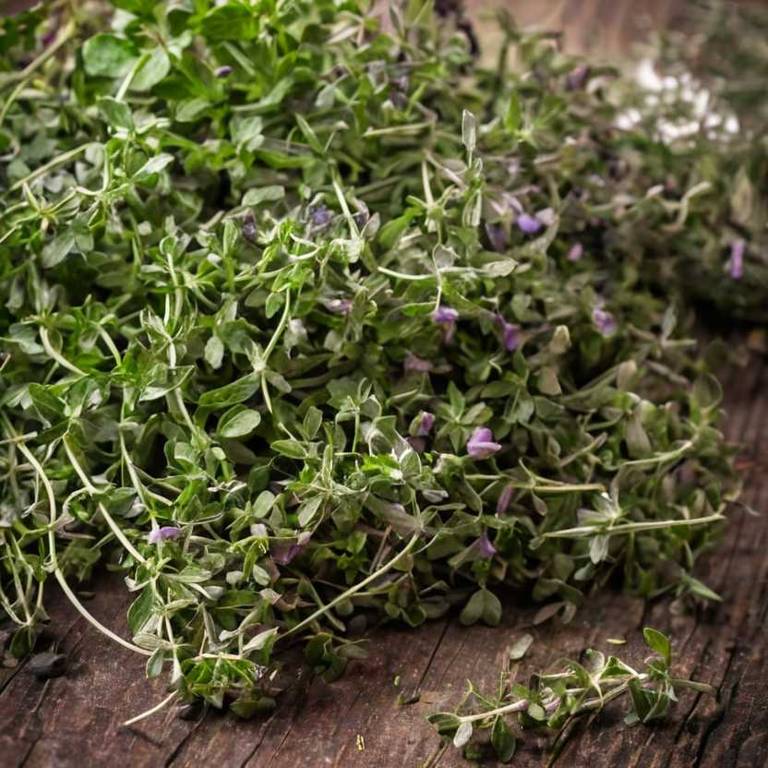
The best medicinal preparations of Thymus serpyllum are teas, decoctions, tinctures, capsules, and syrups, each offering unique benefits for health and wellness.
Teas made from dried leaves and flowers are commonly used to soothe respiratory issues and boost immunity.
Decoctions, which involve simmering the herb, are ideal for extracting more potent compounds.
Tinctures provide a concentrated form for easy dosing, while capsules offer a convenient and standardized option.
Syrups are often used for children or those with difficulty swallowing, making the herb accessible to a wider audience.
Below there's a list of the 10 best herbal preparations of thymus serpyllum for medicinal purposes.
- 1. Teas
- 2. Decoctions
- 3. Tinctures
- 4. Capsules
- 5. Syrups
- 6. Mucillages
- 7. Lozenges
- 8. Oils
- 9. Creams
- 10. Juices
1. Teas
Thymus serpyllum teas is commonly used to support respiratory health, alleviate digestive issues, and promote immune function.
This herbal preparation is often employed to treat ailments such as coughs, colds, bronchitis, and gastrointestinal discomfort. It is also used to reduce stress and enhance mental clarity due to its calming properties. The bioactive constituents responsible for its medicinal effects include thymol, carvacrol, phenolic compounds, and essential oils, which have antimicrobial, anti-inflammatory, and antioxidant properties.
These compounds contribute to its ability to fight infections and support overall well-being.
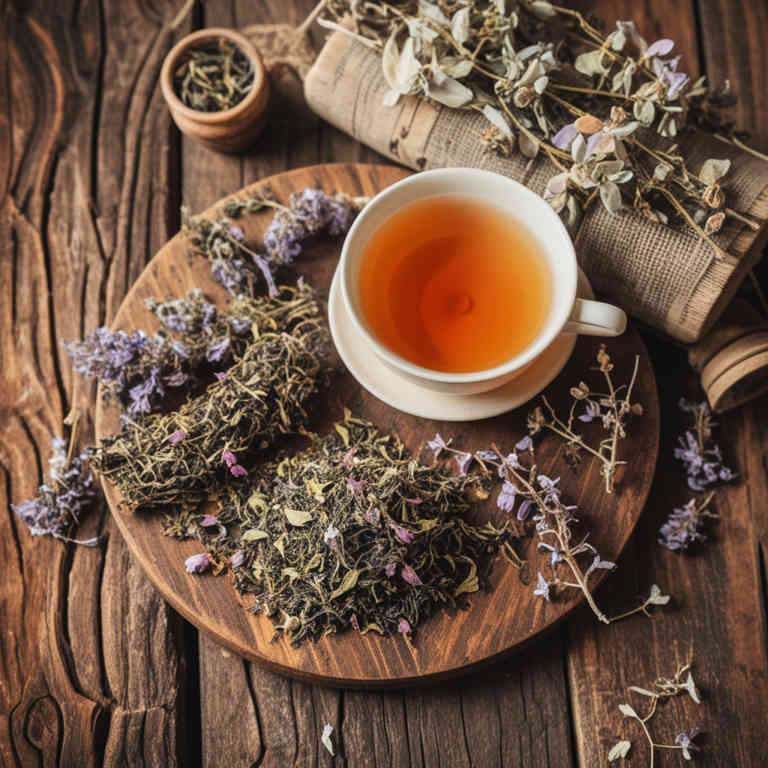
2. Decoctions
Thymus serpyllum decoctions is commonly used to support respiratory health, alleviate digestive issues, and boost the immune system.
This herbal preparation is traditionally used to treat ailments such as coughs, bronchitis, indigestion, and fatigue. The most common medicinal uses include respiratory infections, digestive disorders, and general strengthening of the body's defenses. The bioactive constituents responsible for its medicinal properties include thymol, carvacrol, and other essential oils that possess antimicrobial, anti-inflammatory, and antioxidant effects.
These compounds contribute to its ability to fight infections and support overall wellness.
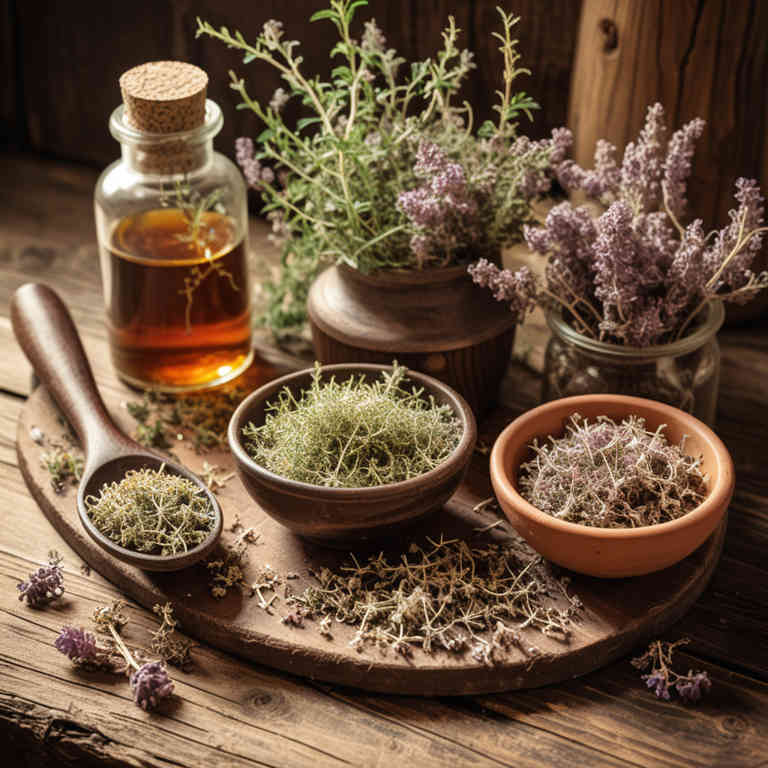
3. Tinctures
Thymus serpyllum tinctures is commonly used to support respiratory health, alleviate symptoms of colds and coughs, and promote immune system function.
These preparations are often employed to treat ailments such as bronchitis, sore throat, and mild respiratory infections due to their expectorant and antimicrobial properties. The bioactive constituents responsible for these effects include thymol, carvacrol, and other essential oils, which exhibit antiseptic, anti-inflammatory, and antioxidant activities. Additionally, the tinctures may help in reducing stress and enhancing mental clarity, making them popular in herbal medicine for their stimulating and tonic effects.
Thymus serpyllum tinctures are also valued for their ability to support digestion and relieve gastrointestinal discomfort.
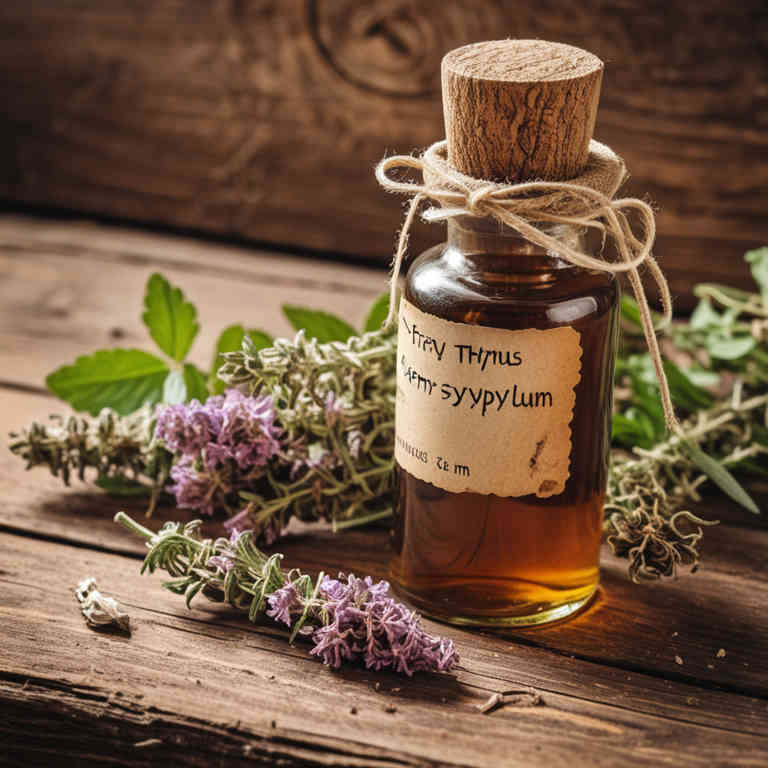
4. Capsules
Thymus serpyllum capsules is commonly used to support respiratory health, alleviate symptoms of colds and coughs, and boost the immune system.
This herbal preparation is often used to treat ailments such as bronchitis, sore throat, and mild respiratory infections due to its expectorant and antimicrobial properties. The bioactive constituents responsible for these effects include thymol, carvacrol, and other essential oils, which possess antiseptic, anti-inflammatory, and immunostimulant qualities. Additionally, the plant contains flavonoids and phenolic compounds that contribute to its antioxidant and therapeutic benefits.
These components work synergistically to enhance the body's natural defenses and promote overall wellness.
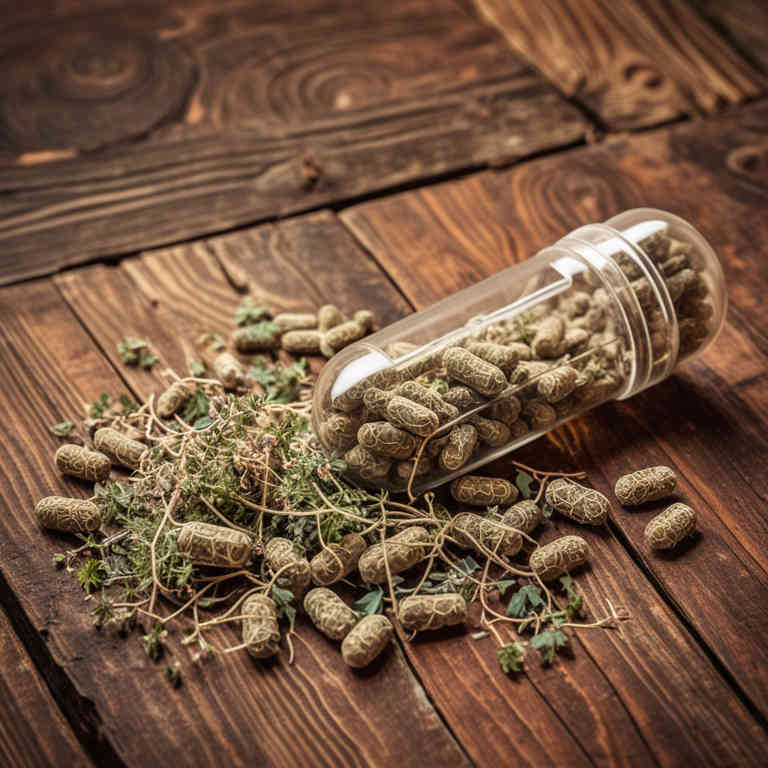
5. Syrups
Thymus serpyllum syrups is commonly used to treat respiratory infections, coughs, and sore throats due to its expectorant and antimicrobial properties.
This herbal preparation is also used to support immune function and alleviate symptoms of colds and flu. The most common medicinal uses include treating bronchitis, asthma, and other respiratory conditions, as well as reducing inflammation in the throat and lungs. The bioactive constituents responsible for these effects include thymol, carvacrol, and other essential oils that exhibit antiseptic, antifungal, and anti-inflammatory actions.
These compounds work synergistically to enhance the body's natural defenses and promote healing.
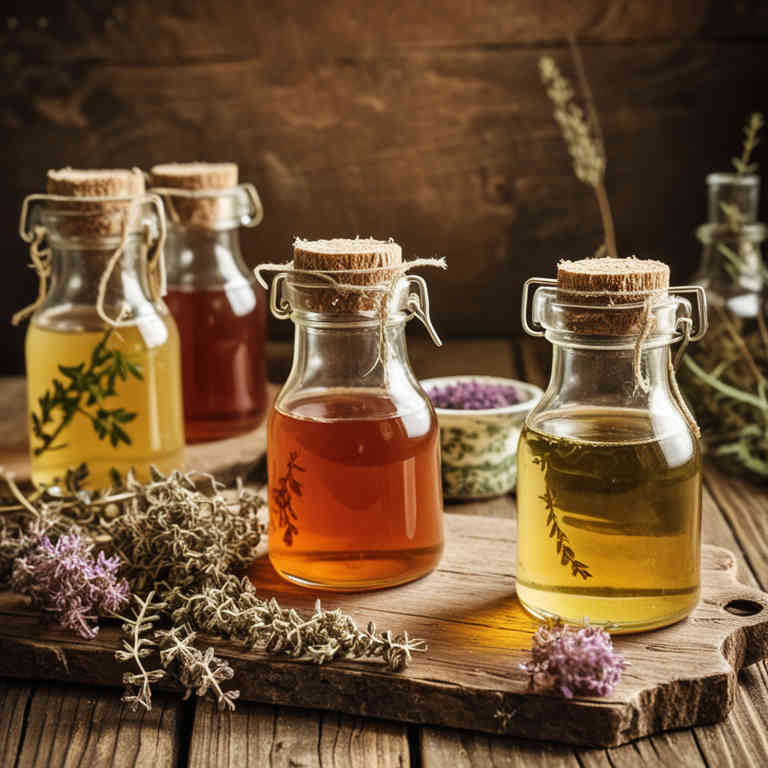
6. Mucillages
Thymus serpyllum mucillages is commonly used to support respiratory health, soothe inflammation, and promote digestive wellness.
This herbal preparation is often employed to treat ailments such as coughs, bronchitis, and gastrointestinal discomfort. The mucillages, which are rich in polysaccharides and glycoproteins, contribute to its demulcent and anti-inflammatory properties. These bioactive constituents help to coat and protect mucous membranes, reducing irritation and promoting healing.
Additionally, the presence of flavonoids and phenolic compounds may enhance its antioxidant and immune-modulating effects.
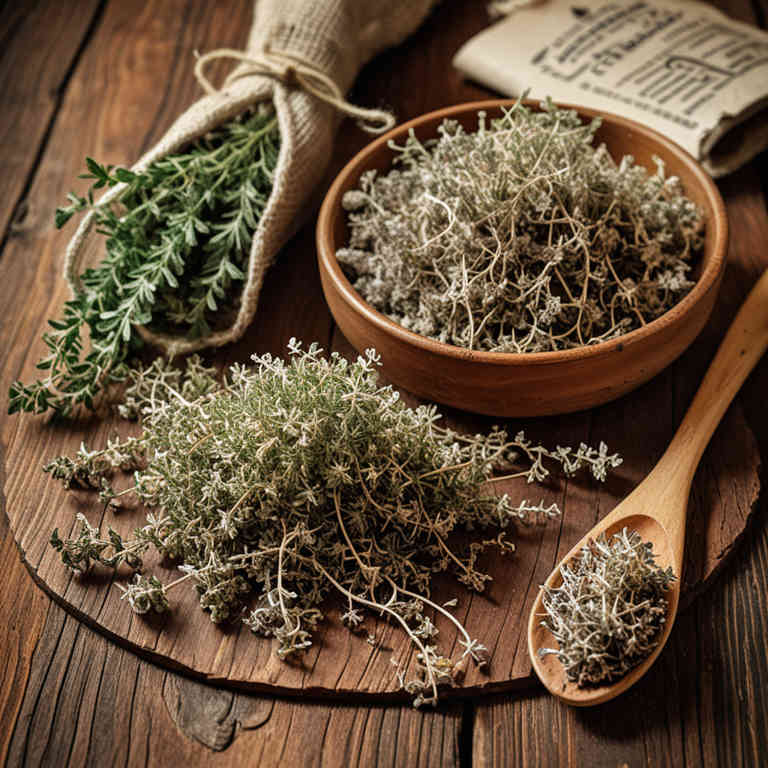
7. Lozenges
Thymus serpyllum lozenges is commonly used to treat respiratory tract infections, sore throat, and cough due to their antimicrobial and anti-inflammatory properties.
They are also used to alleviate symptoms of colds and bronchitis, and in some traditional systems, to support immune function and reduce stress. The most common medicinal uses include treating upper respiratory infections, boosting immunity, and managing symptoms of asthma and allergies. The bioactive constituents responsible for these effects include thymol, carvacrol, and other essential oils, which exhibit antimicrobial, antiseptic, and immunostimulant activities.
These compounds help reduce inflammation, fight pathogens, and enhance the body's natural defenses.
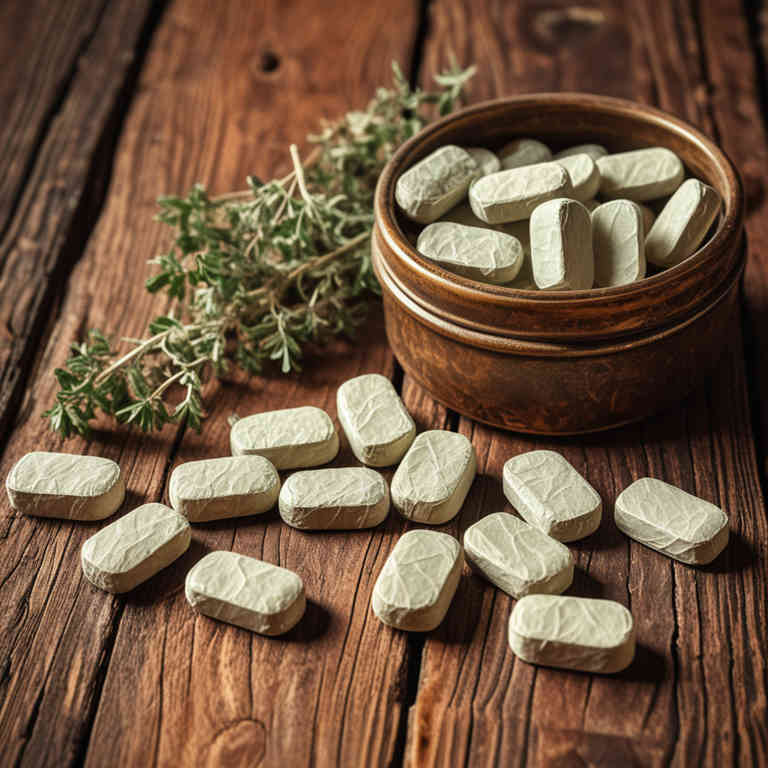
8. Oils
Thymus serpyllum oils is commonly used to treat respiratory infections, digestive issues, and skin conditions due to its antimicrobial and anti-inflammatory properties.
The most common medicinal uses include alleviating symptoms of colds, coughs, bronchitis, and sore throat, as well as supporting digestion and treating fungal infections like athlete's foot. It is also used topically for wounds, eczema, and other skin irritations. The bioactive constituents responsible for these effects include thymol, carvacrol, terpenoids, and flavonoids, which exhibit antimicrobial, antioxidant, and immunomodulatory activities.
These compounds contribute to its effectiveness in combating infections and promoting overall wellness.

9. Creams
Thymus serpyllum creams is commonly used to treat respiratory and skin conditions due to its antiseptic and anti-inflammatory properties.
These creams are often applied for ailments such as coughs, bronchitis, and skin infections like eczema and fungal infections. The most common medicinal uses include alleviating symptoms of respiratory tract infections and promoting wound healing. The bioactive constituents responsible for these effects include thymol, carvacrol, and other essential oils that exhibit antimicrobial, antioxidant, and immunostimulant activities.
These compounds contribute to the plant's ability to fight infections and support the body's natural defenses.
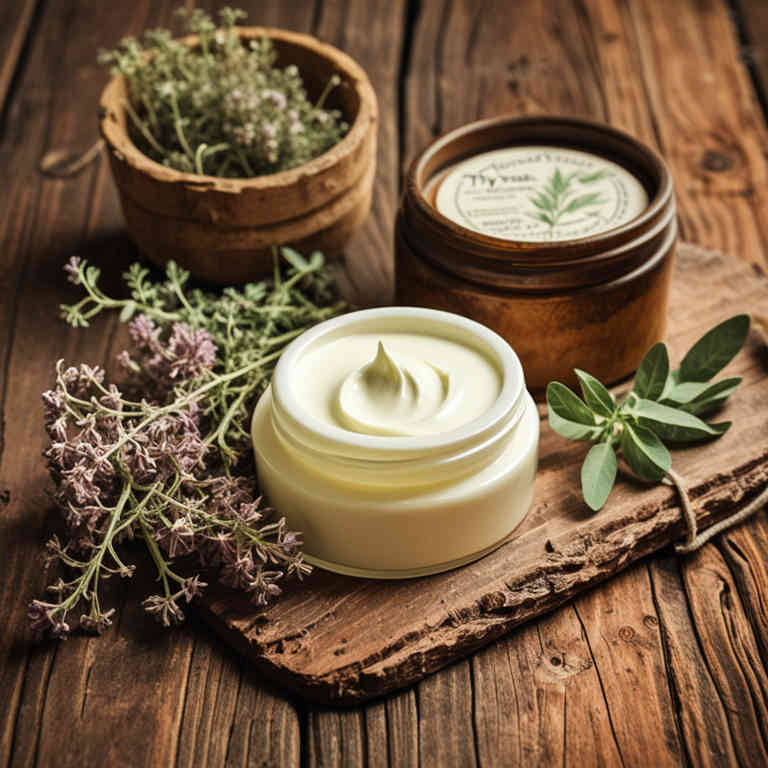
10. Juices
Thymus serpyllum juices is commonly used to treat respiratory infections, digestive issues, and skin conditions due to its antimicrobial and anti-inflammatory properties.
The most common medicinal uses include alleviating symptoms of coughs, bronchitis, and asthma, as well as aiding digestion and reducing inflammation in the gastrointestinal tract. It is also used topically to treat wounds, eczema, and other skin disorders. The bioactive constituents responsible for these effects include essential oils such as thymol and carvacrol, which have strong antimicrobial and antioxidant properties.
Additionally, flavonoids and phenolic compounds contribute to its anti-inflammatory and immune-boosting effects.
